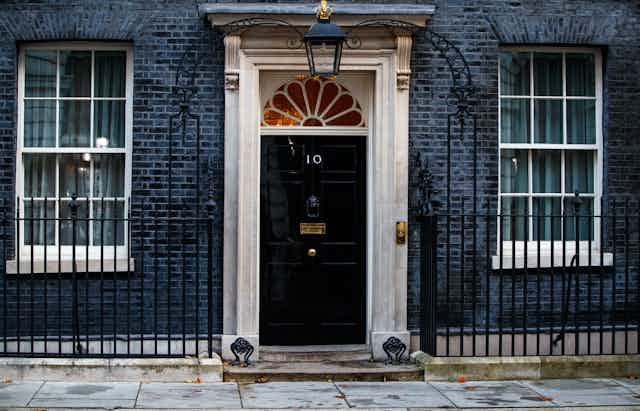The cost of living crisis in the UK continues. After confirmation that households will be paying almost £700 extra a year on gas and electricity bills, it seems that 2022 is living up to its label as the “year of the squeeze”.
As well as price increases, taxes are due to rise from April. National insurance (NI) rates will go up by 1.25 percentage points to 13.25%, a move criticised by politicians on both the left and right, who argue that it penalises working families and is a tax on labour rather than wealth or assets.
There are warnings that the rise could lead to a major increase in the number of families facing destitution. The National Institute of Economic and Social Research think-tank says 1 million households may be unable to afford the basic essentials required “to eat, stay warm and dry, and keep clean” if the tax rise goes ahead.
It urged the UK government to reconsider, saying it could be calamitous for families already struggling to deal with recent price hikes which have been caused by supply chain disruptions and global wholesale energy prices. Alongside the price of gas, electricity and vehicle fuel rising respectively by 28%, 18% and 21% compared to last year, other significant increases have been seen in transport, housing, hospitality and food. Overall, inflation has reached its highest rate in 30 years, reaching 5.4% in December 2021 and potentially as high as 7% by April.
The impact of rising costs differs depending on the proportion of their income that households spend on various goods. Households on lower income spend a higher proportion of their budget – up to 60% – on food, housing and gas and electricity, so are disproportionately hit by price rises.
Struggling families are also a reflection of the political landscape in the UK over the last decade or so. For example, austerity policies introduced in response to the financial crisis of 2008 led to 25% less per person being spent on most public services in 2019-20 compared to ten years previously. A decade of cuts in welfare, education and housing have left the poorest more vulnerable, and inequalities have increased.
Brexit too has brought economic uncertainty and disruption. The Office for Budget Responsibility forecasts that the fall in trade and investment will result in a 4% reduction in the size of the UK economy in the long term. Leaving the EU has also meant substantial losses in both skilled and unskilled labour as a result of immigration restrictions.
The cost of being poor
As well as the raise to NI, council tax is also expected to rise and there will be a freeze on the income tax threshold for the next four years. This usually rises with inflation, allowing people to earn more without being taxed extra. Meanwhile, freezing the personal allowance at £12,570 – that’s the amount of income that is not taxed – for the next four years means that more people on lower incomes will pay income tax.
In fact, it has been estimated that by 2025, around 2 million more people will be paying income tax than would be the case if the personal allowance rose with inflation. Separately, the government is also proposing to reintroduce VAT on hospitality and accommodation.
The Resolution Foundation, another think-tank, has calculated that these tax rises will cost households £600 a year on average. Combined with energy bill increases, that cost rises to £1,200 from April 2022.
To prevent the cost of living crisis from becoming a catastrophe, the government urgently needs to lessen the impact of rising prices and taxes on low income families. And it has taken some steps in this direction.

For example, it is offering a £150 council tax rebate for homes in the lowers bands A to D and a £200 discount on energy bills. It also announced a loan scheme for energy firms worth £6 billion, to protect households from soaring bills.
But there are other options which would alleviate cost pressures and support households – and quickly. First, the warm homes discount could be extended to all those on universal credit, with VAT and green levies scrapped from all energy bills. Then to protect families on benefits, the government should follow advice from the Institute for Fiscal Studies, which recommends that the proposed 3.1% rise in benefits should at least be doubled to reflect the rise in inflation.
As for the rise in national insurance, under current proposals, this will be borne not just by those with the broadest shoulders but also by the poorest. The government should at least delay it until the inflationary environment looks less volatile. For as we have seen before, these rises place the most pressure on the most vulnerable in society. A year which already looks financially bleak for so many is not the time to make it even worse.

